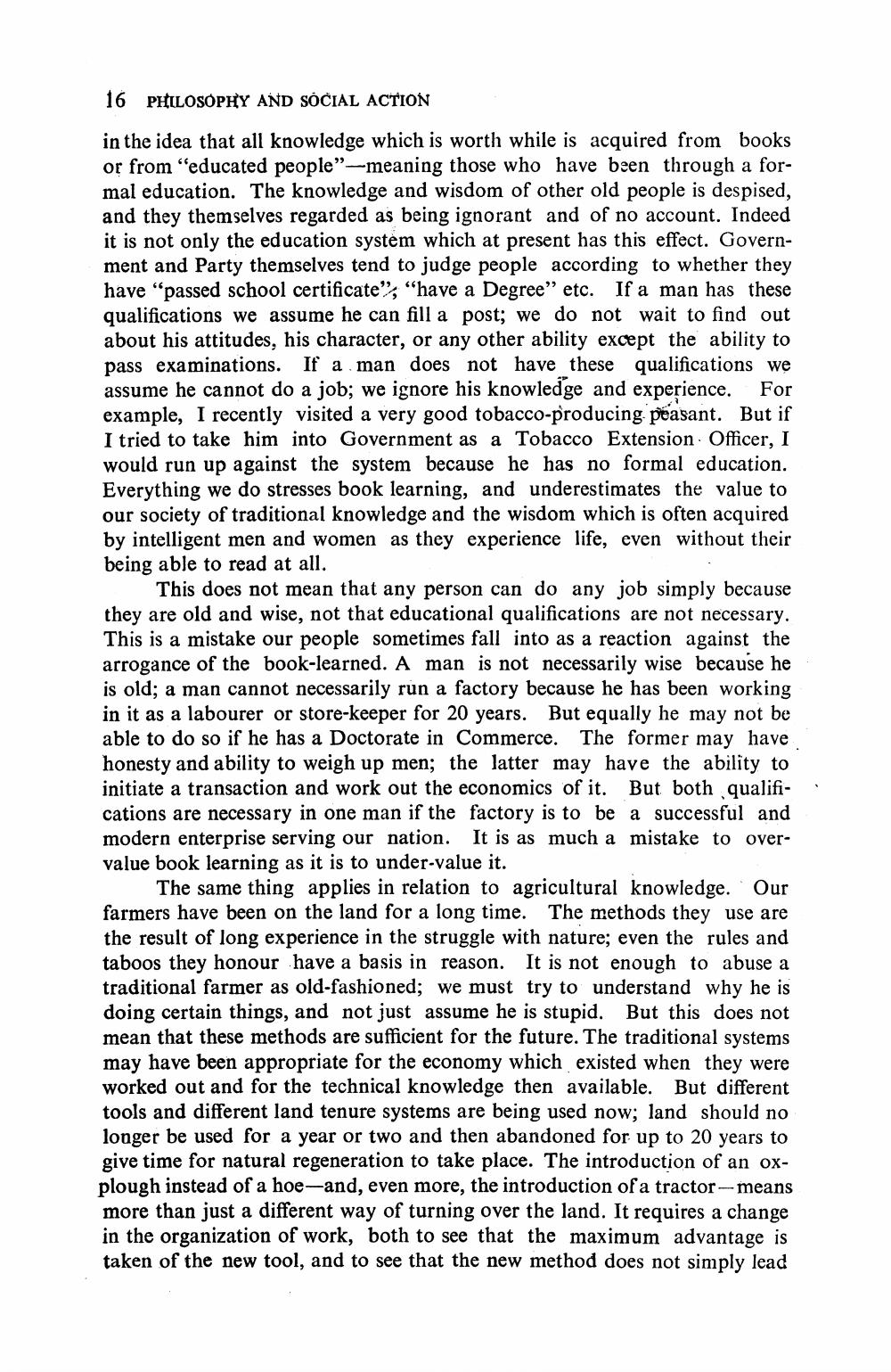Book Title: Education For Self Reliance Author(s): Julius K Nyerere Publisher: Julius K Nyerere View full book textPage 8
________________ 16 PHILOSOPHY AND SOCIAL ACTION in the idea that all knowledge which is worth while is acquired from books or from "educated people"-meaning those who have been through a formal education. The knowledge and wisdom of other old people is despised, and they themselves regarded as being ignorant and of no account. Indeed it is not only the education system which at present has this effect. Government and Party themselves tend to judge people according to whether they have "passed school certificate", "have a Degree" etc. If a man has these qualifications we assume he can fill a post; we do not wait to find out about his attitudes, his character, or any other ability except the ability to pass examinations. If a man does not have these qualifications we assume he cannot do a job; we ignore his knowledge and experience. For example, I recently visited a very good tobacco-producing peasant. But if I tried to take him into Government as a Tobacco Extension Officer, I would run up against the system because he has no formal education. Everything we do stresses book learning, and underestimates the value to our society of traditional knowledge and the wisdom which is often acquired by intelligent men and women as they experience life, even without their being able to read at all. This does not mean that any person can do any job simply because they are old and wise, not that educational qualifications are not necessary. This is a mistake our people sometimes fall into as a reaction against the arrogance of the book-learned. A man is not necessarily wise because he is old; a man cannot necessarily run a factory because he has been working in it as a labourer or store-keeper for 20 years. But equally he may not be able to do so if he has a Doctorate in Commerce. The former may have honesty and ability to weigh up men; the latter may have the ability to initiate a transaction and work out the economics of it. But both qualifia successful and mistake to over cations are necessary in one man if the factory is to be modern enterprise serving our nation. It is as much a value book learning as it is to under-value it. The same thing applies in relation to agricultural knowledge. Our farmers have been on the land for a long time. The methods they use are the result of long experience in the struggle with nature; even the rules and taboos they honour have a basis in reason. It is not enough to abuse a traditional farmer as old-fashioned; we must try to understand why he is doing certain things, and not just assume he is stupid. But this does not mean that these methods are sufficient for the future. The traditional systems may have been appropriate for the economy which existed when they were worked out and for the technical knowledge then available. But different tools and different land tenure systems are being used now; land should no longer be used for a year or two and then abandoned for up to 20 years to give time for natural regeneration to take place. The introduction of an oxplough instead of a hoe-and, even more, the introduction of a tractor-means more than just a different way of turning over the land. It requires a change in the organization of work, both to see that the maximum advantage is taken of the new tool, and to see that the new method does not simply leadPage Navigation
1 ... 6 7 8 9 10 11 12 13 14 15 16 17 18
